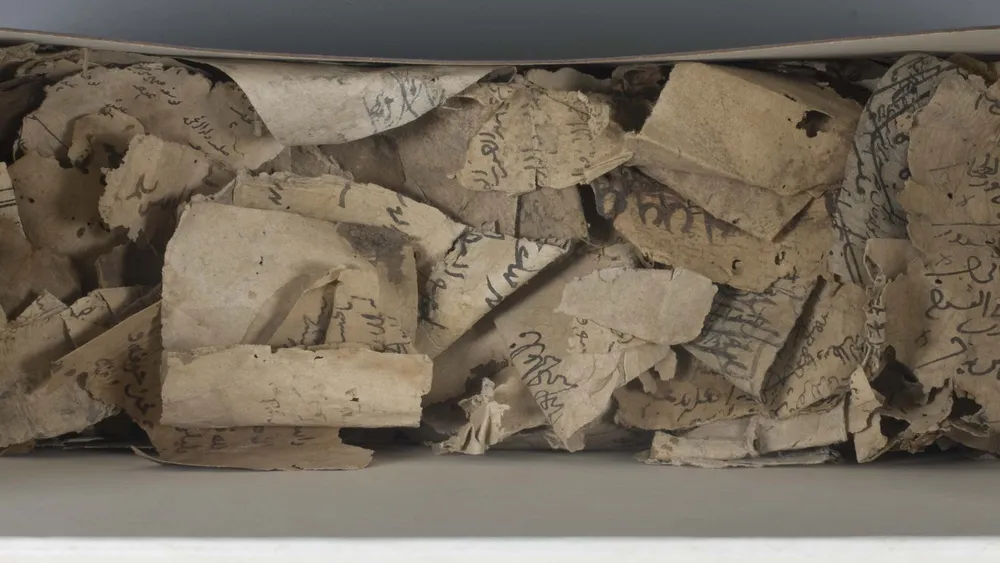Princeton Geniza Project
Accessing the medieval Islamic world through digital tools
View project websiteAccessing the medieval Islamic world through digital tools
View project website
Rebecca Sutton Koeser, Gissoo Doroudian, Ben Silverman, Nick Budak, Kevin McElwee and Ryan Heuser. “Princeton Geniza Project, V4.16” Zenodo, January 18, 2024.
Ben Silverman and Rebecca Sutton Koeser. “Annotorious Tahqiq: 1.3.0”. Zenodo, July 22, 2024.
Marina Rustow, Rebecca Sutton Koeser, Rachel Richman, Ksenia Ryzhova, Amel Bensalim, and Abdellatif Mohamed. “Princeton geniza project dataset”. Zenodo, July 8, 2025. https://doi.org/10.5281/zenodo.15839056.
Nick Budak, Marina Rustow, Rebecca Sutton Koeser, Gissoo Doroudian, Natalia Ermolaev, Stephanie Luescher, and Rachel Richman, “CDH Project Charter – Princeton Geniza Project 2020-2021” (Center for Digital Humanities at Princeton, October 12, 2020)
Marina Rustow, Rebecca Sutton Koeser, Nicholas Budak, Gissoo Doroudian, and Rachel Richman, “CDH Project Charter – Princeton Geniza Project Year 2, 2021-2022” (Center for Digital Humanities at Princeton, April 11, 2022)
Rebecca Sutton Koeser, “Princeton Geniza Project.” (presentation, DHTech meetup, April 20, 2023)
Honorable Mention in the Fast Company 2023 Innovation by Design Awards (Category: Learning)
From 2020-2022, the CDH partnered with the Princeton Geniza Project to expand access to the global Middle Ages through cutting-edge digital tools.
The research partnership centered on the Cairo Geniza, a cache of roughly 380,000 fragmentary texts that survived in the attic of a medieval Egyptian synagogue. The texts span a thousand years of history, with most dating to between 950 and 1250, and cover an astonishingly wide geographic remit, stretching from Spain to Sumatra. This was probably the most geographically mobile society of the medieval world. The documents have also rewritten Jewish history in a time when an estimated ninety percent of Jews lived in the Islamic world.
In 1985, Prof. Mark Cohen and Prof. Avrom Udovitch (now both emeriti) founded the Princeton Geniza Lab (PGL) under the aegis of the Department of Near Eastern Studies to expand the range of geniza documents and supporting materials available to scholars, students and the general public; the Princeton Geniza Project (PGP) is its primary project. Under Mark Cohen’s leadership, the PGP digitized 4,350 transcriptions of Geniza documents and made them word-searchable. In 2015, Prof. Marina Rustow took over the directorship of the PGP and, together with Prof. Eve Krakowski, refocused the research team’s efforts on expanding the PGP’s documentary footprint and developing more robust metadata and discovery tools. The PGP now has 28,000 entries, accompanied by descriptions, tags and typologies by document genre.
The PGP–CDH partnership has facilitated research into these fragments by redesigning the research experience at the front and back ends. We restructured the project data and de-siloed the site’s digital components, which include images, metadata, searchable transcriptions, and non-searchable scans of specialists’ research notes, including those of the extraordinarily productive “grandfather” of documentary geniza studies, S. D. Goitein (1900-85). Together we developed a more intuitive and powerful user interface to search across the data and analyze it holistically.
By streamlining the research process and making geniza documents more readily accessible to those encountering them for the first time, we have been able to inspire a new generation of researchers interested in premodern global history to integrate geniza documents into their studies and their scholarship.

1 July 2021
Rebecca Sutton Koeser

Long Term Support
Research Partnership